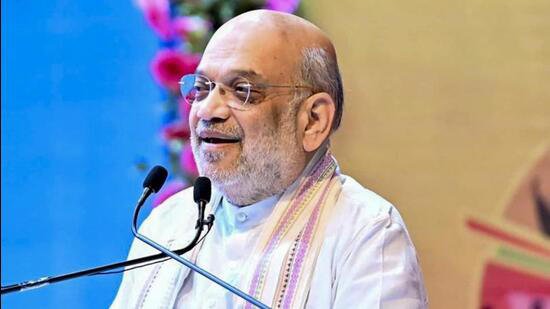The Meitei community in Manipur is urgently seeking the intervention of Union Home Minister Amit Shah regarding the ongoing blockade of a crucial pilgrimage site in the state. The blockade, which has been affecting access to one of the region’s most revered religious locations, has become a point of contention, with the Meitei community expressing their concerns over the disruption of religious practices and cultural heritage.
The issue, which centers around the blockade of the temple located in the hills of Manipur, has drawn sharp reactions from the local population. The pilgrimage site, an important hub for spiritual and cultural activities, has been a symbol of religious significance for the Meitei people for generations. The blockade, orchestrated by certain groups in the region, is seen as an infringement on the community’s right to worship and maintain its cultural practices.
The Context of the Blockade
Manipur, a state in northeastern India, is home to a diverse range of ethnic communities, with the Meitei community being the majority group in the Imphal Valley. The Meiteis are predominantly Hindus, and the pilgrimage site in question holds immense religious value for them. The blockade was initiated by groups from other communities in the region, citing political and cultural differences. The impact of this blockade has been profound, preventing access to the temple and forcing devotees to alter their plans for religious observances.
The blockade not only affects pilgrims but also hampers the religious tourism that has been a source of livelihood for many in the area. For the Meitei community, the pilgrimage is a way to connect with their heritage, and the obstruction of access to such a sacred space has led to widespread frustration and anger. The Meitei groups argue that this blockade represents an attack on their religious freedom and cultural identity.
Meitei Appeal to Amit Shah
In light of the growing tensions and the negative impact on the community’s religious practices, a delegation of Meitei leaders has approached Home Minister Amit Shah to intervene in the matter. The appeal is aimed at urging the central government to take swift action in resolving the issue and ensuring that the blockade is lifted. The Meitei leaders have expressed concern over the failure of state-level efforts to address the issue and have called on the central government to step in and restore peace and access to the sacred site.
The delegation’s plea highlights the urgency of the situation, emphasizing the importance of safeguarding religious freedoms and cultural heritage. They have also pointed out that the blockade is causing economic hardship for the local community, with businesses dependent on religious tourism suffering losses. The Meitei groups argue that it is essential for the central government to intervene to ensure that such blockades do not become a recurring issue that disrupts the peaceful coexistence of communities in the region.
Regional Tensions and the Role of the Central Government
The ongoing tensions between different ethnic communities in Manipur have been a long-standing issue. While the Meitei community forms the majority in the Imphal Valley, there are several other ethnic groups, including the Nagas and Kukis, who primarily reside in the hill areas surrounding the valley. These groups have historically had differences in terms of culture, political representation, and access to resources, leading to occasional flare-ups of violence and unrest.
The blockade of the pilgrimage site is just one of several flashpoints that have arisen due to these underlying tensions. However, the Meitei community’s concerns are rooted not only in religious freedom but also in the desire for greater protection of their cultural practices and heritage. They view the blockade as an infringement on their way of life and are seeking the government’s support to ensure that their rights are protected.
For Amit Shah, the issue presents a challenge in balancing the interests of different communities in Manipur. The central government has consistently emphasized the need for peace and harmony in the region, and Amit Shah’s intervention could play a crucial role in diffusing tensions and finding a resolution. While the Meitei community is seeking a direct intervention from the Home Minister, it remains to be seen how the central government will approach the matter and whether it will facilitate a long-term solution to the ethnic divisions in the state.
The Path Forward
The resolution of the blockade issue will likely require extensive dialogue between the state government, community leaders, and other stakeholders. It is essential that all parties work toward a peaceful resolution that respects the religious freedoms of the Meitei community while addressing the concerns of other groups in the region.
The central government’s intervention, should it come, would be an important step in ensuring that Manipur remains a region of religious tolerance and mutual respect. It would also send a message that the rights of communities to practice their faith and maintain their cultural heritage must be protected, regardless of political or ethnic differences.
For now, the Meitei community waits in anticipation of Amit Shah’s response, hoping that their appeal will lead to the resolution of a blockade that has disrupted their religious practices and threatened their cultural identity. It remains to be seen how the situation unfolds, but it is clear that the need for a peaceful and inclusive solution has never been more urgent for the people of Manipur.


